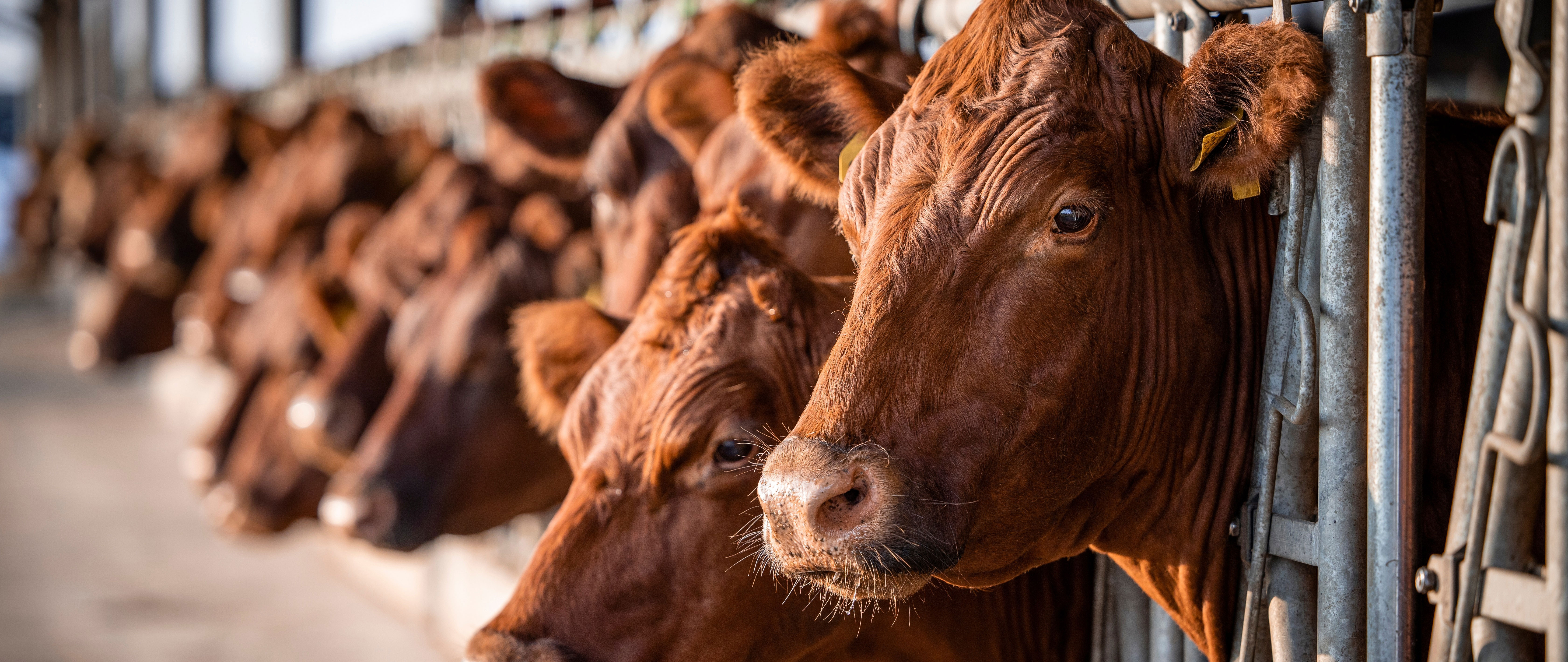Cultured Meat: What's in it for farmers?

12 July 2024
Far from spelling the end for traditional agriculture, a report released today suggests how scientists and companies developing cultured meat could find common cause with farmers.
It is already possible to grow animal cells in the lab and make simple forms of cultured meat, such as mince or nuggets. The challenge now facing this emerging industry is to scale up production and bring down costs, while convincing regulators and the public that the new technology is safe.
Today’s report, from a team led by the Royal Agricultural University (RAU), suggests that using by-products from farming could bring this goal one step closer while also making cultured meat more environmentally sustainable and cheaper, both to produce and for the public to buy. The research also investigated the threats and opportunities as seen by a wide range of UK farmers.
Professor Tom MacMillan, Elizabeth Creak Chair in Rural Policy and Strategy at the RAU, who led the study, said: “The National Food Strategy called for a 30% cut in meat consumption over 10 years, and argued that developing better and cheaper alternative proteins could help. While the jury is out on whether cultured meat will fit the bill, we’ve found that it needn’t spell disaster for farmers. The farmers who spoke to us for this study had lots of concerns about the technology but, for the most part, had many bigger challenges on their plates. Some were also interested in its opportunities, from supplying raw materials to even producing it on their farms.
“Some places around the world have banned cultured meat in the name of protecting farming. But instead of seeing this as ‘all or nothing’, we explored where there could be win-wins. Building bridges with farmers is certainly in the cultured meat companies’ interests, as some are starting to see. More surprisingly, we found that keeping the door open may serve farmers better too.”
Possible by-products that could be used in cultured meat production include the leftovers from making rapeseed oil, some of which currently goes to animal feed. It is rich in amino acids which are the costliest and least sustainable ingredients used to grow cultured meat.
This research found that using these by-products, instead of synthetic amino acids, could reduce the environmental footprint of cultured meat by using less energy, water, and land, and make the end product more affordable.
Importantly, linking cultured meat production and farming could also benefit some farmers and address concerns over the threat the new technology poses to traditional farming, which has led Italy and some US states to ban cultured meat.
The team partnered with nine UK farms to find out what cultured meat might mean for their individual businesses. Compared with challenges such as changing weather patterns and global commodity markets, the threat of competition from cultured meat felt like a ‘slow burn’ to them.
Their main concerns were about wider social issues, such as big companies controlling the food system or the knock-on effects for rural communities, more than about the direct impact on their businesses.
One of the farmers who contributed to the study said: “The cultured meat industry needs to talk more about what they’re up to, rather than keeping everything behind closed doors. But I also think that us farmers could listen a bit more too.”
The study was guided by an advisory group including farming organisations and cultured meat businesses. It also involved practical workshops with policymakers, funders, environmental groups, and cultured meat businesses to identify practical next steps.
Guy Poppy, Transforming UK Food Systems SPF Programme Director, Deputy Executive Chair of BBSRC and UKRI Food Champion, who funded the study, said: “Whilst there is general agreement about the need to transform our food system for healthier people and a healthier planet, there is considerable debate about how best to do that. One of the very contested areas relates to the role of livestock farming for meat rather than the race for alternative protein sources such as cultured meats.
“This report offers synergies and a future route for bridging divides between livestock farmers and cultured meat producers. Importantly the call for greater communication and discussion will be important for many innovations being developed to help make food production and farming be a solution to climate change as opposed to a major contributor to emissions and climate change.”
Click here to download the report Culture Clash? What cultured meat could mean for UK farming